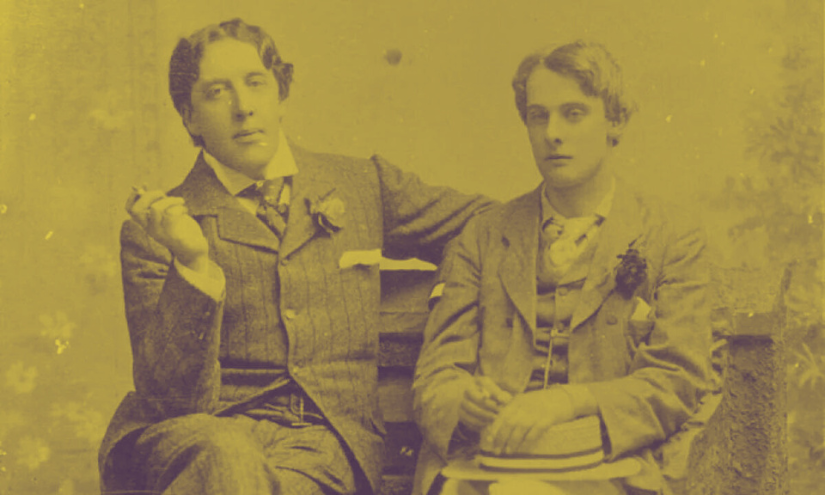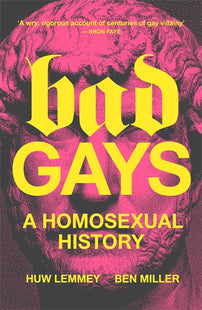We all remember Oscar Wilde, but who speaks for Bosie?
Bosie became a footnote in the story: an embodiment of ‘evil twink energy’, a poisoned apple whose path through life left a wake of destruction that led to the great hero’s downfall.

In 1891, Oscar Wilde’s star was on the rise. For a decade he had been the talk of London, a literary wit who pioneered the fashion and philosophy of aestheticism. He had successfully published works of prose and collections of poetry, and was preparing his first novel, The Picture of Dorian Gray, for publication, a masterful account of a Faustian bargain dripping with desire, vanity, and corruption. England regarded this sparkling Irishman with a combination of fascination, admiration, and horror, but no one could deny he was becoming a titan of the national culture.
Yet within five years, Wilde’s reputation, and his health, were destroyed. Sentenced to two years of backbreaking hard labour, Wilde was spat at by strangers as he was transported via train to jail. Upon release, he fled into exile, living in penury under an assumed name. Nobody wanted to be known as his friend. Less than a decade after he had reached the heights of literary stardom, Wilde was dead.
It’s right and proper that we remember the role Wilde played within an otherwise staid and repressive Victorian culture, as well as the important, pioneering work he did describing, in public, a form of same-sex desire that otherwise lay hidden and criminalised on the margins. Wilde was one of the first men in British society to give a creative form to a sexuality that barely yet understood itself, let alone was understood or discussed by straight people. For that, conservative forces succeeded in destroying him. But at the core of Wilde’s story is his love for a terrible young man, a love that drove him close to madness and sparked the wildfire of events that led to his ruin.
That boy, a petulant and cruel son of the British aristocracy, was Lord Alfred Douglas, known by his affectionate nickname ‘Bosie’. Wilde and Bosie first met in 1891, when Bosie was a twenty-one-year-old undergraduate at Wilde’s alma mater, Magdalen College, Oxford. Bosie was an archetypal twink, popular and athletic, who cared more about his writing and activities in the new ‘Uranian poetry’ movement, which idolized pederastic relationships between older and younger men, than his studies, which he never completed. In Wilde he found his ideal older lover and benefactor, whose work and plays he had already praised in Uranian journals.
Their tempestuous affair pushed Wilde’s homosexuality from the realm of flirtatious literary innuendo into that of reckless public identity. Besotted with the young poet, Wilde fell in with Bosie’s lifestyle and indulged his demands. The two lovers drank and partied together and became the subject of scurrilous rumours. They began to host wild sex parties with young working-class men, who they paid to fuck (or get fucked by). Wilde’s public image – an educated and charming raconteur, married with children – clashed with his private life, and while the conflict could hold for a few years, it wasn’t long before the inevitable happened.
After clashing with Bosie’s father, the Marquess of Queensberry, Wilde was left a calling card from the Marquess accusing him of being a sodomite. Queensberry, having two homosexual sons whom he regarded as having been corrupted by ‘snob queers’ such as Wilde and then–prime minister Archibald Primrose, 5th Earl of Rosebery, was obsessed with homosexuality.
Wilde’s friends told him to leave the case well alone, but, pushed by an impetuous and jealous Bosie, who hated his father, Wilde sued. There was a fatal hole in Wilde’s case – he was a sodomite, and Queensberry could prove it. The civil trial not only humiliated Wilde in the eyes of a homophobic Victorian public, but instigated a further criminal trial for gross indecency. Wilde was found guilty and sentenced to hard labour, which, in the end, indirectly killed him.
Wilde’s imprisonment, as awful and scandalous as it was, came at what was both a dangerous and an auspicious time for the new figure of the ‘homosexual’ in Europe. Within certain, albeit small, literary and scientific circles, a new identity was forming. Sexologists described a ‘third sex’ somewhere between male and female. In cities thronging with the new proletarian masses and enriched by colonial plunder, a group of people became the first generation of activists pursuing something we might recognize as ‘gay rights’. They discussed same-sex desire with sensitivity, even respect, calling themselves ‘Uranians’, ‘Urnings’, or even ‘Homosexuals’. For such people, Wilde’s trial was an important moment in the development of what would, in the ensuing decades, become something like a coherent movement. Scandals, after all, brought public attention. The newspapers wrote about the dangerous homosexuals, and more people began to recognize themselves as such and be endangered, and intrigued, by what that recognition might mean.
Wilde’s utopian vision of love between men remains, in Britain and beyond, a creation myth of the public male homosexual identity. Speaking at his trial Wilde launched a passionate defence of homosexual desire:
It is in this century misunderstood, so much misunderstood that it may be described as ‘the love that dare not speak its name’, and on that account of it I am placed where I am now. It is beautiful, it is fine, it is the noblest form of affection. There is nothing unnatural about it.
Such a statement can almost be seen as a rallying cry for the century of LGBTQ rights activism that was to follow, and Wilde became one of its first martyrs.
Bosie became a footnote in the story: an embodiment of ‘evil twink energy’, a poisoned apple whose path through life left a wake of destruction that led to the great hero’s downfall. Yet Bosie – the man, his desires, his attitudes, and his foibles – was just as integral to the eruption of homosexuality into the public sphere as was Wilde. Bosie set the trial in motion. Indeed, it was actually Bosie, and not Wilde, who had coined the term ‘the love that dare not speak its name’ in one of his poems. No less than Wilde, Bosie shaped and was shaped by the sexual attitudes and cultures of his time, and Bosie’s later life of far-right political involvement is just as unpleasant and illuminating as his years with Oscar.
After Wilde’s death, Bosie married a bisexual poet named Olive Custance, and when their marriage went downhill he converted to Catholicism and began espousing increasingly anti-Semitic views. He wrote articles for the anti-Semitic magazine Vigilante accusing various people of plots to undermine British masculinity with Jewish homosexuality, and in 1920 co-founded a magazine called Plain English that advertised copies of the anti-Semitic conspiracy theory The Protocols of the Elders of Zion, defamed leftists and the Irish, and accused figures as right-wing and conventionally masculine as Winston Churchill of being involved in Jewish conspiracies to undermine the war effort. (Churchill eventually sued, and won). After a period of imprisonment, Bosie died poor and obscure in 1945. Only two people attended his funeral.
For years, gay people have remembered Oscar as one of their own, but neglected Bosie as someone who has anything to tell us about how homosexuality came to be. Why do we choose to remember the witty and glamorous Wilde, and to forget the Machiavellian, anti-Semitic, and louche Bosie? And more crucially, why do we assume that Wilde’s life and attitudes shaped the track record of the project of homosexuality better than Bosie’s? Bosie was hardly the first gay to become obsessed with far-right and racist politics, or to confuse liberation with the freedom to live out his own desires and elevated class status.
If we are to accept that some of the greatest artists, activists, and poets of history were guided and motivated by their sexuality, why not the criminals, despots, and bigots? Within their lives are valuable lessons regarding how we came to understand ourselves, about the challenges LGBTQ people have faced – not always honourably – through history, and how sex, love, and desire have led people to make world-changing decisions. It is not simply that these are fascinating, complex lives that compel us towards understanding homosexuality. They also ask us to pose the question of the whole notion of gay heroes: why do we choose to remember, and why do we choose to forget?
‘Gay is good,’ went the old slogan, but it’s no good at all on its own. Many of the queers with the very worst political goals have wanted to position themselves as heirs to a secret or magical kingdom, as the sons of a long line of heroes. The process of making the movement and the identity has often involved reifying, recreating, and worshipping power and evil in their most brute forms. Maybe it is time that homosexuality itself dies, that we find new and more functional and more appropriate configurations for our politics and desires. Or maybe being queer is just as transitory and incomplete as anything else. Maybe all of us are lost and scared, subject to forces beyond our control, and trying to figure out how to configure our unruly desires and our politics into an ethical way of being in the world.
If there is anything of homosexuality to be saved, it is its reconstruction of the concept of the family. Not born into fixed kin, we get to choose ours. This can be a project of socialization but also of politicization, of understanding to which kind of political ‘we’ we wish to belong. Understanding how we became a ‘we’ in the first place – and interrogating the extent to which that ‘we’ even makes sense, given how different ‘we’ have been from one another and how terribly ‘we’ have often been treated by one another – might help more of us choose better. Then the real work begins.
— An edited excerpt from Bad Gays: A Homosexual History by Huw Lemmey and Ben Miller.
[book-strip]
